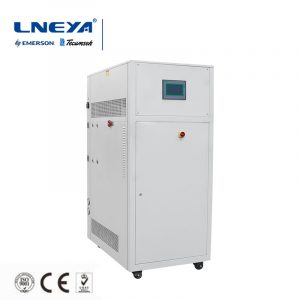most efficient heating system
The Most Efficient Heating System: An In-Depth Analysis
Heating systems are a cornerstone of modern comfort, with efficiency and environmental impact being key considerations in their selection and operation. As the world transitions towards more sustainable energy solutions, the efficiency of heating systems has become a critical factor in reducing energy consumption and greenhouse gas emissions.
Market Trends and Efficiency

The global push for energy efficiency in heating systems is evident, with heat pumps emerging as a leading solution. Ground source heat pumps (GSHPs) and air-source heat pumps (ASHPs) are 4-5 times more energy-efficient than fuel-based or electric resistance systems, as they move heat rather than generate it. GSHPs, which absorb heat energy from the ground or water sources, are more efficient than ASHPs due to the stability of ground and water temperatures compared to outdoor air temperatures.
Types of Heating Systems
Ground Source Heat Pumps (GSHPs): These systems are connected to a tank for hot water and can also provide space cooling. They run on electricity and can achieve significant energy bill savings in well-insulated homes, with an average lifespan of 20-25 years.
Air-to-Air Heat Pumps: These systems use outside air to heat homes and can also provide space cooling. They are ideal for homes without radiators or underfloor heating and can achieve energy bill savings of up to 35% in Germany or up to 50% in France compared to gas boilers.

Solar Thermal Heaters: These systems use solar collectors on roofs to produce hot water, which can contribute to space heating needs when combined with other heating systems, reducing the energy cost of the combined system.
Heat Networks: These centralized systems distribute heat through underground pipes and can achieve significant energy bill savings in well-insulated homes, with a lifespan of about 20-25 years.
Biomass Boilers: These systems burn wood pellets, chips, or logs to heat water and can be a sustainable option if the biomass is sourced responsibly.
Inverter Heat Pumps: The Future of Efficiency
Inverter heat pumps stand out for their ability to adjust their output based on weather and indoor conditions, providing steady, comfortable climate control and significant energy savings. Unlike single-stage HVAC systems, which operate at full capacity or are off, inverter heat pumps can have thousands of distinct settings, allowing them to run nearly constantly at varying speeds for optimal efficiency. This constant operation not only leads to better comfort but also reduces the energy waste associated with frequent starting and stopping of traditional systems.

Environmental Impact
The environmental impact of heating systems is a crucial factor in determining their efficiency. Studies have shown that GSHPs have lower environmental impacts compared to natural gas and air conditioner systems, especially when considering the operation stage of their life cycle. However, the manufacturing and installation of GSHPs can have a more significant impact, highlighting the need for further research and improvements in these areas.
Conclusion
The most efficient heating systems today are those that maximize energy efficiency while minimizing environmental impact. Heat pumps, particularly GSHPs and ASHPs, lead the way in this regard, offering coefficients of performance that far exceed traditional heating methods. Inverter heat pumps, with their ability to provide precise temperature control and significant energy savings, represent the future of efficient heating. As technology continues to advance, the efficiency and environmental performance of heating systems will continue to improve, offering more sustainable options for homes and industries worldwide.
Related recommendations
System Inspection Steps for Air-cooled Chillers
1577System Inspection Steps for Air-cooled Chillers First, the refrigeration system Check the pipelines of the refrigeration system for cracks, damage, frosting, etc. Whether there is any fr...
View details150 ton air cooled chiller
306IntroductionIn the domain of high - capacity cooling systems, the 150 - ton air cooled chiller stands as a significant solution for various large - scale cooling needs. With a substantial cooling...
View detailsindustrial water chiller systems
783Industrial Water Chiller Systems: Efficiency, Applications, and Innovations Industrial water chiller systems are an essential component in many industries where precise temperature control is r...
View detailschillers prices
433Chillers Prices: A Detailed Analysis Introduction Chillers are essential components in various industries and commercial settings for maintaining optimal temperatures. When considering the...
View details
 LNEYA Chiller
LNEYA Chiller






HelloPlease log in